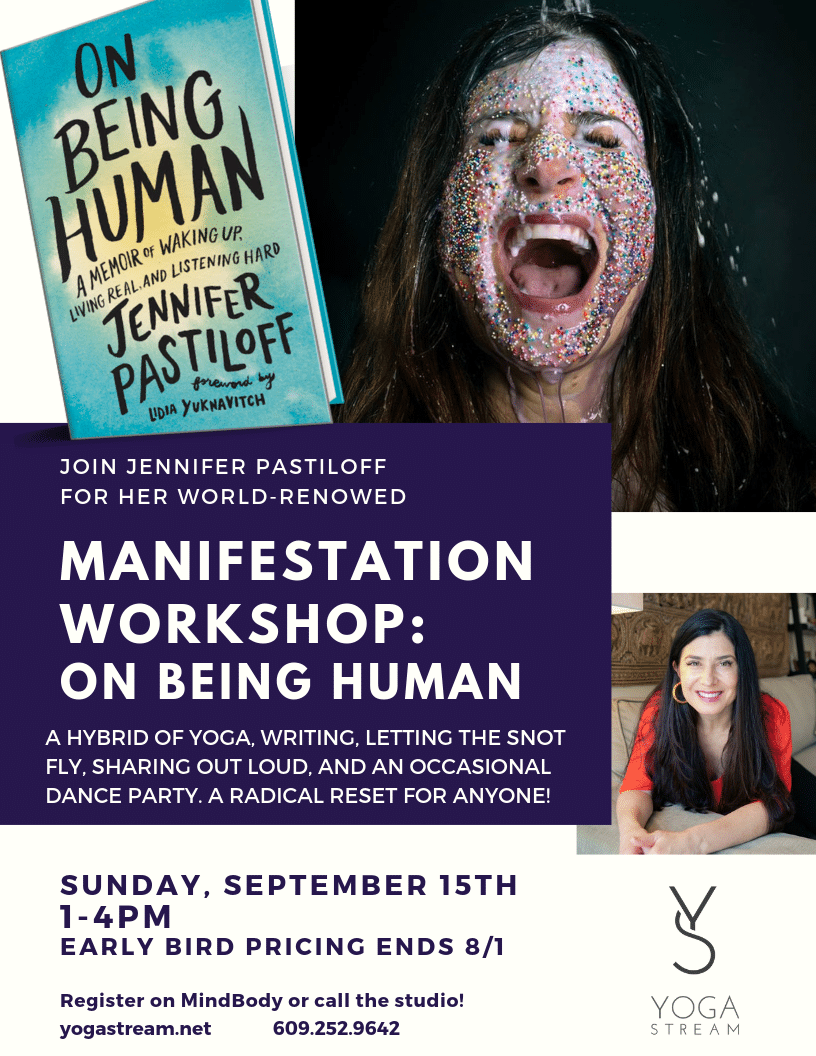By Pam Anderson
It’s a hot day. The sun beats relentlessly and the sweat rolls freely and excessively down my back and legs as I cut the grass, and because I’m angry, I appreciate the feeling of punishment that the heat doles out. We’ve recently had a significant storm in our small town, and so I’ve had much debris to cut, carry, rake, and stack along the edge of the driveway for the city clean-up crew.
I’m mowing on the diagonal, and as I get as close to the skirt of the driveway, my feet tangle in the uneven edges of the stacked fallen branches and I trip and thud heavily to my knees. The left kneecap throbs, but I manage a mostly graceful one-hand-on-the-mower-one-hand-pushing-off-the-ground return to an upright position. I, with equal grace, scream out “Mother Fucker!”, but my words are drowned out by both my mower—which has not stopping running—and the chipper down the block, busy grinding up a neighbor’s 60-foot pine tree downed by the storm.
My knee hurts, and my bad back has been aching from the physical labor, but I am dedicated to finishing the job. I’ve got to do something, keep busy. The television drones on in the house as Robert Mueller, III, truncated and repetitive in his testimony, disappoints me. Outside, wearing a gray “It’s Mueller Time” tee shirt purchased years ago, when the outlook of everything felt more promising, I mow ferociously and try to make peace with him.
I spend time in my head re-hashing what I’ve heard of Muller’s lackluster responses and I rationalize that he is just a man. My mind instantly skips to the lines from the Jesus Christ Superstar musical number sung by Mary Magdalene, “He’s a man…he’s just a man”. The irony is not lost on me: so many hoped Mueller would be our savior. Sadly, he really is just a man, and he cannot fix the bigger thing that is broken in us, in our country. More importantly, it’s not his responsibility to.
I make a return pass of the lawn walking directly into the sunlight, and without warning, the weight of the day—the real weight of the day—hits. It’s Mueller and the self-satisfied Republicans who grilled him and treated him like an incompetent child, yes, but this moment, the one that forces me to physically double over, is so much more personal than that. This moment’s pain is the culmination of ugliness and hatred all around me—big and small—the kind that sprays and ricochets like bullets, landing mostly on the vulnerable. And to those who are recently emboldened to behave aggressively and angrily simply because they can, my daughter, one of the vulnerable ones, wears a bullseye on her chest.
***
My daughter has a communication disability, a processing and word retrieval disability. Her disability is invisible, and she presents in a completely average way, which tends to work against her. People assume she’s a certain something, but then she’s not; they feel deceived.. And people get mad about it. They get mean about it.
When Rachel lived with us in Las Vegas after high school, she stumbled through a series of part time jobs. She was fired from each one: Tropical Treat Frozen Yogurt, Port of Subs, Atria Elderly Care Facility, JC Penny’s, Energy Options Call Center. Because of her disability, Rachel has trouble remembering a series of verbal directions—she loses track after 2 or 3 steps—and because of this she’s been accused of being lazy for not completing a task fully. Rachel has a hard time thinking on the spot—she needs time to process—and so she’s been called dumb by customers when there is a problem at the cash register. Rachel isn’t savvy—she was fired from the call center because she forgot her headset was “live” even if she wasn’t on a call, and so she was taped discussing with co-workers the partying she had done over the weekend.
My daughter’s vulnerabilities don’t end at work. Peers misunderstand her. Rachel studies people hard when she’s in a conversation, because she’s trying to focus. In high school, girls accused her of staring at them or of giving them creepy looks. Rachel doesn’t understand double entendre, so classmates made jokes and then called her “retarded” if she didn’t get them. As she got older, young men found her attractive—she’s a beautiful young woman—but they also found her confusing. Rachel wasn’t practiced at the nuance of being flirty or coy, and so dates felt rejected and responded in kind, triggering Rachel’s insecurities. A few early relationships did some considerable emotional damage to her; in one case my ex-husband and my son sunk to physical confrontation of a boyfriend, wanting to do considerable damage right back. They came to their senses when the boyfriend ran, scared.
Rachel received educational support in school since first grade, and as is common, after years of being pulled out of class, she hated feeling different. She started to reject support in high school, resulting in failed classes. I worked with her and found outside-of-school support and paid to send her to private speech and language therapy, but I could only do as much as Rachel would allow me to do: she had been led to water, but she was the one who had to decide to drink.
When our family moved to Wisconsin, Rachel moved in with us for a few months as she figured out what was next. I thought our small town would be perfect for her; maybe people would be more accepting, less unkind. She lasted here three months. Turns out small towns practice a different kind of mean, but it’s mean all the same.
Because of the experiences I’ve seen Rachel go through, I have a heightened sensitivity to watching people treat others with blatant disrespect. And I’ve seen so much of it lately: from people offering my daughter opinions meant to sear and scar, all the way up to the president insulting others with his words and actions, separating us from our humanity, walling us off from one another.
The day of the Mueller Congressional Hearing, I seethed at committee members who spat rude remarks as Mueller sat taking it, seemingly either confused or incapable of biting response. But I was also mad at Mueller for not being who I wanted him to be, for not behaving as I’d hoped: strong, defiant, righteous. The feeling of anger on behalf of a person while also feeling anger with that person for not fending off the ugliness—for themselves, but maybe also for me—hit too close to home. I couldn’t watch anymore. The best I could do was tend to my lawn, trying to create some sense of order.
Pam Anderson is a former high school English teacher, recently retired. After 30 years of helping young people with their writing, she to enroll in a graduate Creative Writing program and finally dedicate energy to her own. Pam is presently pursuing an MFA in Creative Nonfiction at Sierra Nevada College.
Upcoming events with Jen
****
THE ALEKSANDER SCHOLARSHIP FUND





